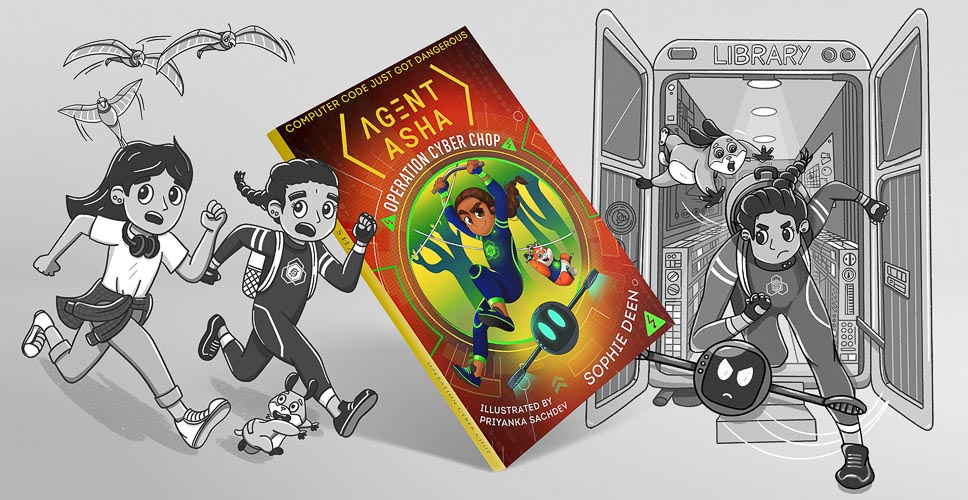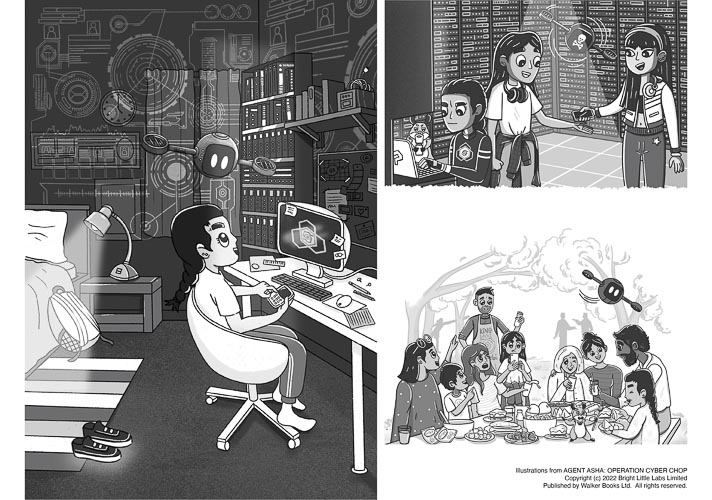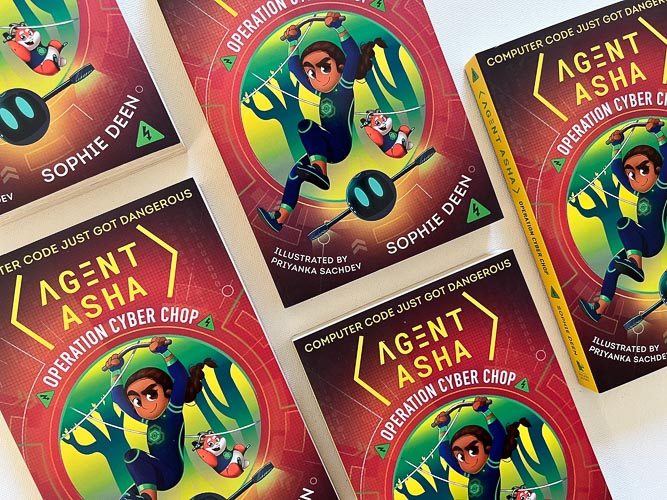Featured IBDA 2023
Empowering Young Minds: Agent Asha Awarded India’s Best Design Project 2023

Agent Asha is an illustrated narrative about 12-year-old British Indian, Asha Joshi who is the latest recruit of the top-secret Children’s Spy Agency. She is suspicious when an evil teenage trillionaire, Shelly Belly, plans to cut down trees in her favourite park to make room for CyberOaks. Asha, being an expert coder and a spy, takes on robot security parrots, and a dubious internship, and travels to Scotland to unravel the mystery. The story is an engaging way to introduce coding and critical thinking to young readers, and aligns with key National Curriculum Computing KS1 and KS2 principles.
A Playful, Educational Narrative
The book aims to achieve its objectives by teaching young girls the fundamentals of coding and fostering an interest in STEM as a career path. This is accomplished through an illustrated narrative that is not only playful, adventurous, and thrilling but also informative and educational. The story is designed to be engaging and accessible, making complex concepts easy to understand for young readers.

Promoting Inclusivity and Representation
One of the book’s significant impacts is promoting inclusivity by introducing brown representation in children’s literature in the West. The main protagonist, a heroic 12-year-old character, serves as a relatable role model for young girls. Through this character, the book simplifies problem-solving using technology, inspiring and educating its readers.

A Collaborative Effort
“Agent Asha” is a 250-page, fully illustrated book published by Walker Books UK and written by British techie-turned-author Sophie Deen. Priyanka Sachdev, selected from a pool of international illustrators, was chosen as the best fit to illustrate the book. Her incredible vision has contributed significantly to the project’s success, leading to a multi-publication series, animated series, and games.

Agent Asha is a groundbreaking project that combines education and entertainment to inspire young girls to pursue careers in STEM. Through its inclusive narrative and engaging storytelling, the book highlightd the importance of representation and early STEM education.
Credit: Priyanka Sachdev

